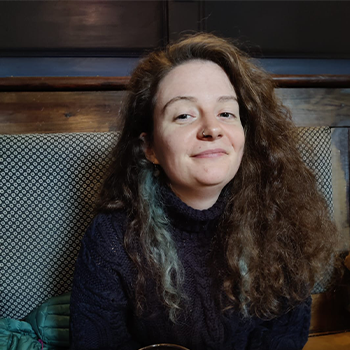Meet 2023 Sir Howard Dalton Young Microbiologist of the Year finalist: Chelsea Brown
Chelsea Brown (University of Warwick, UK)
What are your current research interests?

My PhD has been on using molecular dynamics (computational simulations) to further our understanding on the plasma membrane and membrane proteins from Mycobacterium tuberculosis. This is the causative agent of tuberculosis (TB), a disease that claims 1.6 million lives annually. Performing simulations of these provides resolution in time and space that is very difficult to achieve in a classical laboratory. Hopefully, this information can aid in drug design and identifying new drug targets to improve the treatment and outcome of TB infections.
What is the theme of your talk?
The theme of my talk is on the mycobacterial cell envelope, focussing on the plasma membrane and proteins found within that are important for synthesis, transport and recycling of cell envelope components. I hopefully will convince the audience of the power of using molecular dynamic simulations to study systems such as this.
How would you explain your research to a GCSE student?
I use super computers to run simulations of what is happening in a bacteria on a scale much smaller than we can see with a microscope. Watching the results of these simulations can tell us how to make new drugs to treat disease or what the drugs could target.
If you weren’t a microbiologist, what would you be?
Before starting my PhD, I worked as a science communicator in a museum. It was very fulfilling to inspire the next generation of scientists, and to have a job where I HAD to play with LEGO and explode things!
Why is it important for you to be a member of the Microbiology Society?
As a computational microbiologist, the society provides a direct link to the rest of the community to make sure that my research is grounded in experimental results and inform experiments going forward. The conferences provide an amazing chance to hear about new research and prompt new computational questions.
